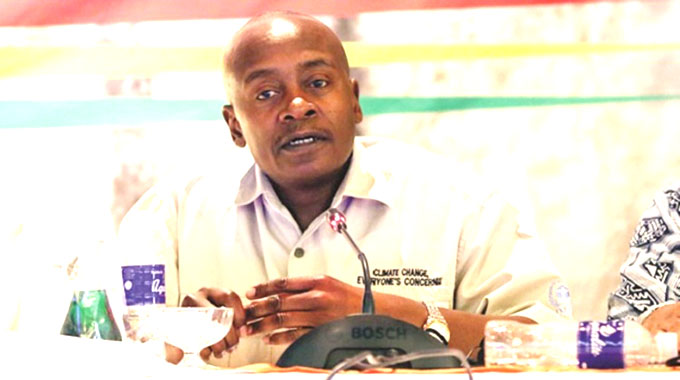
The Sunday News

Vincent Gono in Victoria Falls
POLICY makers and climate experts drawn from 15 countries across the globe descended on Victoria Falls to share experiences and create synergies on how they can adapt to climate change as well as build resilience within their communities to minimize effects of the global phenomenon.
The peer learning forum whose theme was, ‘transitioning from planning to implementation in the national adaptation plan process’ was hosted by the National Adaptation Plan (NAP) Global Network in collaboration with the Government of Zimbabwe with the objective to promote peer to peer learning on how countries can finance and take action on the priorities set out in their National Adaptation Plans.
In interviews conducted here, the participants said they were excited at the knowledge sharing experience adding that countries could no longer afford not to share information on various strategies that they were putting in place to adapt to the effects of climate change.
Mrs Aria St Luis from Grenada said the process of coming together and creating synergies was the best way to deal with the effects of climate change.
“Climate change is a global problem with local impacts. In order to address this we require action at local level then the regional and global community level. We need to come together because we are all on a journey but at different stages, so we cannot afford to make the same mistakes that those in front have made,” she said.
She added that the peer to peer learning forum allows the opportunity for policy makers and experts from different countries to listen to what other countries have been doing to deal with impacts of climate change.
Mrs St Luis said what was important and interesting was that the world had everything it needed to deal with the effects of climate change and coming together to share resources and knowledge was one of the critical factors in dealing with adaptation.
Head of Secretariat for the NAP Global Network Mr Orville Grey buttressed the need for global collaboration in dealing with the effects of climate change.
“The complexity of today’s climate change challenge requires countries and partners to collaborate and coordinate in a pragmatic manner and we hope that participants can learn from and build upon each other’s experiences to strengthen their own national adaptation planning processes.
“This South-South peer learning event presents a unique opportunity to break silos, engage in iterative thinking, share experiences, and assess different practices. Collectively, we can move forward in building resilience among people, systems and countries while building long lasting relationships,” said Mr Grey.
He added that the forum was an ideal opportunity for countries to partner and transform their systems to be able to plan with climate change in mind.
He said it was through the NAP process that countries drive coordination, set policy priorities, mobilise resources, allocate support and track progress in achieving their adaptation goals.
Director, Climate Change Management Department in the Ministry of Environment, Climate and Wildlife Mr Washington Zhakata said collaboration was important in dealing with the impacts of climate change which were becoming more apparent.
He said Zimbabwe recognized the increasing effects of climate change and was moving from raising awareness on adaptation to developing and implementing adaptation plans and policies as well as prioritizing enhancing the resilience capacity of its communities.
He thanked NAP Global Network for giving support to developing countries and helping accelerate adaptation efforts through exchange programmes meant for knowledge sharing to ensure that insights were accessible to all developing countries.
Participants were drawn from such countries as Armenia, Bhutan, Cambodia, Colombia, Liberia, Namibia, Paraguay, St Lucia, Timo Leste, Zambia, Lesotho, Kenya and Zimbabwe.



